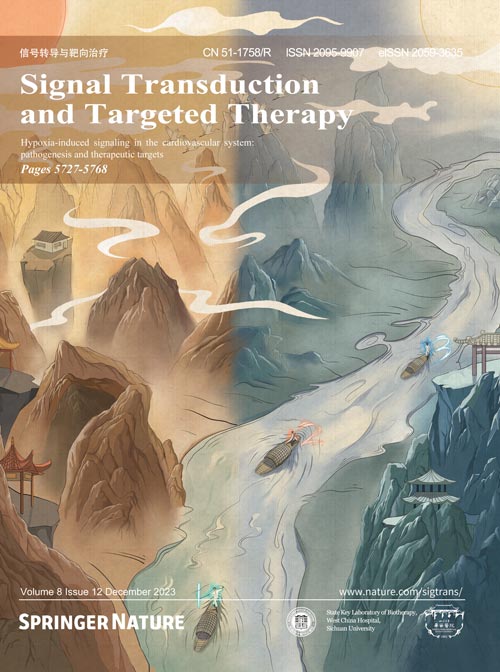Volume 8 Issue 12, Dec 2023:
Review Article
γδ T cells: origin and fate, subsets, diseases and immunotherapy
Yi Hu,Qinglin Hu,Yongsheng Li
ORCID: orcid.org/0000-0003-2175-9449,Ligong Lu
ORCID: orcid.org/0000-0003-1405-0052,Zheng Xiang,Zhinan Yin
ORCID: orcid.org/0000-0001-6524-8777,Dieter Kabelitz
ORCID: orcid.org/0000-0002-4160-7103 &…Yangzhe Wu
The intricacy of diseases, shaped by intrinsic processes like immune system exhaustion and hyperactivation, highlights the potential of immune renormalization as a promising strategy in disease treatment. In recent years, our primary focus has centered on γδ T cell-based immunotherapy, particularly pioneering the use of allogeneic Vδ2+ γδ T cells for treating late-stage solid tumors and tuberculosis patients. However, we recognize untapped potential and optimization opportunities to fully harness γδ T cell effector functions in immunotherapy. This review aims to thoroughly examine γδ T cell immunology and its role in diseases. Initially, we elucidate functional differences between γδ T cells and their αβ T cell counterparts. We also provide an overview of major milestones in γδ T cell research since their discovery in 1984. Furthermore, we delve into the intricate biological processes governing their origin, development, fate decisions, and T cell receptor (TCR) rearrangement within the thymus. By examining the mechanisms underlying the anti-tumor functions of distinct γδ T cell subtypes based on γδTCR structure or cytokine release, we emphasize the importance of accurate subtyping in understanding γδ T cell function. We also explore the microenvironment-dependent functions of γδ T cell subsets, particularly in infectious diseases, autoimmune conditions, hematological malignancies, and solid tumors. Finally, we propose future strategies for utilizing allogeneic γδ T cells in tumor immunotherapy. Through this comprehensive review, we aim to provide readers with a holistic understanding of the molecular fundamentals and translational research frontiers of γδ T cells, ultimately contributing to further advancements in harnessing the therapeutic potential of γδ T cells.
